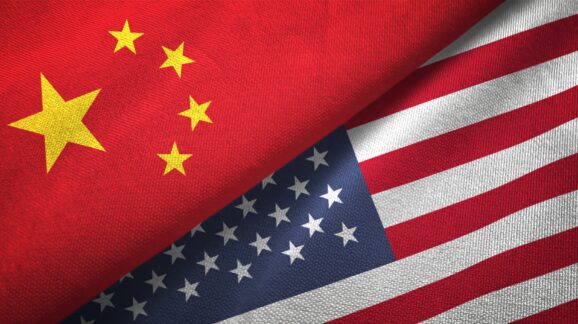UN Montreal Protocol meeting begins in Nairobi

Photo Credit: Getty
The United Nations’ 35th meeting of the parties to the Montreal Protocol on Substances that Deplete the Ozone Layer (Montreal Protocol) begins this week in Nairobi, Kenya. The Montreal Protocol imposes restrictions on the refrigerants used in most air conditioning and refrigeration equipment, so the proceedings could have implications for consumers. The meeting could also impact whether China continues to get a relative free pass by being classified as a developing country, or whether it has to start playing by the same rules as the US on this environmental treaty.
The Montreal Protocol dates back to 1987, and originally targeted a class of compounds called chlorofluorocarbons (CFCs) on the grounds that they contribute to erosion of the earth’s ozone layer. CFCs (often called Freon), which were widely used as refrigerants at the time, have since been replaced in new equipment by hydrofluorocarbons (HFCs). But then the goalposts were moved back, and although HFCs were first hailed as environmentally-friendly alternatives, they were later branded as contributors to climate change. So, in 2016 the Kigali Amendment was added to the Montreal Protocol phasing down HFCs as well.
Congress enacted its own restrictions on HFCs in the American Innovation and Manufacturing Act of 2020. This costly domestic counterpart to the Kigali Amendment is a big part of the reason why the cost of repairing a home air conditioner has jumped up and why new equipment prices are also on the rise. Beyond consumers, many manufacturing processes also rely on HFC-dependent equipment, thus manufacturers face higher costs over the eventual replacement of this equipment with more expensive new systems that use substitutes.
These domestic restrictions on HFCs are hurting the American economy, and it would be a mistake to think that the Kigali Amendment ensures a globally-level playing field. The UN treaty has exceptions for developing nations, which are treated far more leniently. These countries are subject to a much slower phasedown of HFC production and thus can continue to use them long after the US and other developed nations will have to move on to costlier substitutes. They also qualify for aid in helping with the transition under the Montreal Protocol Multilateral Fund for which the US is the single largest contributor.
Shockingly, China is still classified by the UN as a developing nation, based on its status when the Montreal Protocol was created in 1987. This gives Chinese manufacturers a big advantage under Kigali as compared to their American and other developed-world counterparts. Thanks to the disparate treatment, Chinese manufacturers can continue using HFCs in manufacturing processes for years after their competitors in the developed world will have to undertake a costly transition to new equipment relying on substitutes for HFCs.
Adding insult to injury, China can use its developing nation status to apply to the UN for foreign aid to help it in meeting its requirements under the Kigali Amendment.
Fortunately, during the Senate debate in 2022 over ratification of the Kigali Amendment, Sens. Mike Lee (R-Utah) and Dan Sullivan (R-AK) introduced an amendment to it requiring the State Department to formally request that the UN change China’s status from developing to developed country. The amendment passed unanimously. Granted, the Senate’s overall ratification of the Kigali Amendment was still a very bad move, but less so thanks to this provision targeting China’s unfair advantage.
This formal request to change China’s status is now on the agenda at the current meeting in Nairobi. Not surprisingly, China is strongly opposing it. Congressional proponents of this amendment need to make sure that the effort to reclassify China is aggressively pursued by the American delegation in this and subsequent UN proceedings.